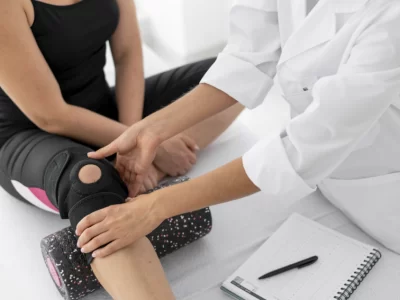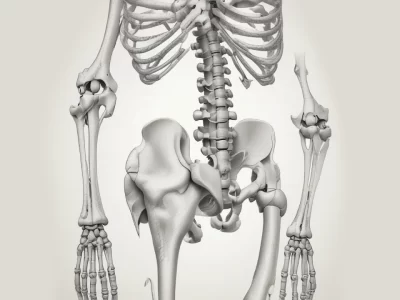Knee replacement surgery, also known as knee arthroplasty, is a medical procedure performed to relieve pain and restore function in severely damaged knee joints. This surgery can be a life-changing experience for individuals suffering from chronic knee pain due to conditions like osteoarthritis or rheumatoid arthritis. However, the success of the surgery largely depends on the postoperative care and rehabilitation efforts. Understanding the recovery process is crucial for patients and their caregivers to ensure a smooth and effective recuperation.
Immediate Postoperative Period
The first few days following knee replacement surgery are critical for a patient’s recovery. Patients typically spend a day or two in the hospital for monitoring and initial rehabilitation. During this time, pain management is a primary focus. Pain medication, both oral and intravenous, is administered to keep the patient comfortable.
Physical therapists start working with the patient soon after surgery to initiate joint movement and muscle-strengthening exercises. The goal is to prevent stiffness and improve mobility as early as possible. Patients are encouraged to engage in ankle pump exercises and gentle leg lifts while in bed.
Home Recovery
Once discharged from the hospital, patients continue their recovery at home. It is essential to create a conducive environment for healing. This includes having assistive devices like crutches or walkers, arranging for a comfortable and elevated seating area, and implementing safety measures to avoid falls.
Pain management continues at home, with prescribed medications and ice packs to reduce swelling. Physical therapy remains a crucial component of the recovery process. Patients typically have scheduled sessions with a physical therapist, who guides them through a personalized exercise program designed to strengthen the muscles around the knee joint and improve overall joint function.
Gradual Increase in Activity
As the initial weeks pass, patients gradually increase their activity levels. Weight-bearing exercises, under the guidance of a physical therapist, help build strength and stability. Patients may start using a cane instead of crutches as they gain confidence in their ability to walk.
The importance of adherence to the prescribed exercise regimen cannot be overstated. Consistency is key in restoring joint flexibility and preventing complications. Patients are encouraged to perform exercises at home in addition to their scheduled physical therapy sessions.
Return to Normal Activities
The timeline for returning to normal activities varies among individuals, but most patients experience significant improvement within a few months. Patients need to communicate regularly with their healthcare team and report any concerns or setbacks promptly.
The ability to resume daily activities such as driving, household chores, and recreational pursuits depends on individual progress. While some patients may regain their mobility relatively quickly, others may require more time and effort. Patience and persistence are crucial during this phase of recovery.
Long-Term Rehabilitation
Recovery from knee replacement surgery extends beyond the immediate postoperative period. Long-term rehabilitation involves maintaining a healthy lifestyle, including regular exercise, a balanced diet, and weight management. Staying active is essential for preserving joint function and preventing future complications.
Patients are encouraged to engage in low-impact activities such as swimming, cycling, and walking to maintain joint flexibility and cardiovascular health. Strength training exercises focusing on the muscles surrounding the knee help provide stability and support.
Regular follow-up appointments with the orthopedic surgeon are essential to monitor the progress of the knee replacement and address any concerns or complications. X-rays may be taken to assess the positioning and integrity of the artificial joint.
Conclusion
Recovery after knee replacement surgery is a gradual process that requires dedication, patience, and a proactive approach to rehabilitation. While the initial weeks may pose challenges, with proper care and adherence to the prescribed treatment plan, patients can experience significant improvement in pain relief and joint function.
The support of healthcare professionals, including orthopedic surgeons and physical therapists, is invaluable during the recovery journey. Additionally, the role of family members and caregivers in providing emotional support and assisting with daily activities should not be underestimated.
Ultimately, successful recovery after knee replacement surgery hinges on a collaborative effort between the patient, healthcare team, and support network. With the right mindset and commitment to the rehabilitation process, individuals undergoing knee replacement surgery can regain their mobility and enjoy an improved quality of life.

